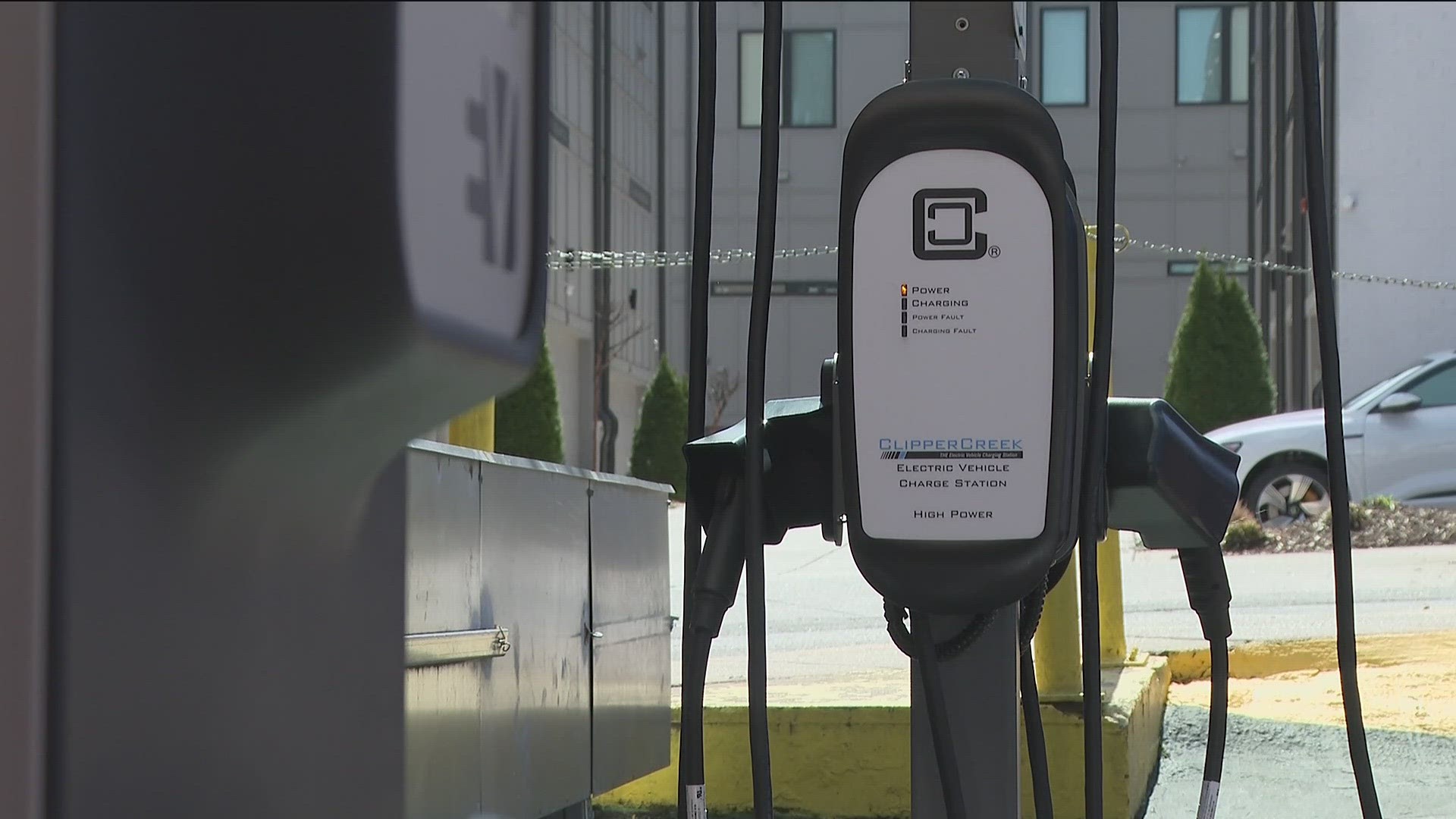ATLANTA — Georgia lawmakers are advancing a bill that would delay a new bill taxing electric vehicles.
As electric vehicles have become more common, so have charging stations. However, free charging stations have an almost fatal flaw in a state with ambitions to tax electricity.
Some charging stations charge money for the electricity. But others, like the ones behind Manuel’s Tavern in Atlanta, give away the juice to customers who are electric vehicle drivers.
"I’ve been to some fast charge stations where you have to pay, but it’s nice to go into a restaurant and get a drink while your car is charging out front," said Tiffany Potter, the owner of a new Nissan Leaf.
The state uses its gas tax to pay for the construction and maintenance of roads and bridges. Because electric vehicles don’t use gas, they don’t pay the motor fuel tax. However, their owners do pay an annual fee, designed in part to make up for their lack of payment of motor fuel taxes.
A state law passed last year was initially written to make Georgia’s EV electricity tax the highest among the states that tax them. Lawmakers lowered the tax a bit and passed it—but then left it to the state department of agriculture to figure out how to measure the electricity used at charging stations that are now free.
"To my knowledge, no other states have figured this out," said Jennette Gayer, executive director of Environment Georgia.
She added it’s impractical to add a cost-effective measurement system to free chargers. "In a lot of cases, it would probably be easier to rip the charger out than it would be to retrofit," she told 11Alive News.
Georgia lawmakers are advancing a bill that would delay for a year the law requiring collection of the electric vehicle equivalent of a gas tax.
The bill doesn’t touch home chargers—which would remain free—but creates a vexing question surrounding the state’s thousands of free chargers. "The worst-case scenario is that we’d have to rip out and shut down thousands of chargers across the state, which are right now helping to make electric vehicles tenable," Gayer said.
The bill advancing through the legislature creates a grace period that gives the state until the end of 2025 to figure out how to tax the juice at EV charging stations.

